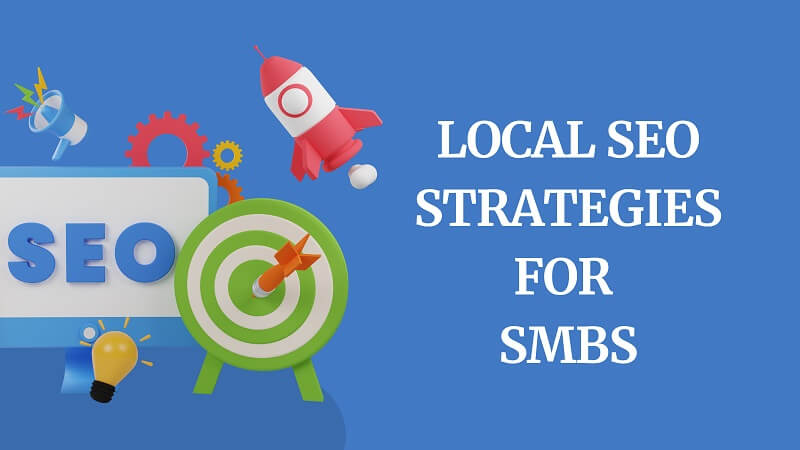
Local search engine optimization (SEO) has become a crucial tool for businesses of all sizes to increase their online visibility and attract more customers. But for small and medium-sized businesses (SMBs), local SEO can be the key to scaling up their operations and reaching new heights of success.
In the current digital era, customers are increasingly using search engines like Google to identify nearby companies that provide the goods and services they require. SMBs must concentrate their marketing efforts on enhancing their online visibility for local search searches because of this. SMBs may raise their positions on search engine results pages (SERPs) and increase visibility to potential clients in their target markets by utilizing local SEO strategies.
What techniques do you employ for local SEO, and what outcomes have you seen?
Local SEO is a crucial aspect of any business that wants to establish its presence in the online world. It helps businesses to get noticed by local customers who are actively searching for their products or services. In today’s digital age, it is essential for businesses to employ various techniques that can enhance their local SEO strategies and drive more traffic to their websites.
Local SEO focuses on improving a business’s online visibility and rankings in local search results. Here are some techniques used in local SEO:
- Google My Business: You should Claim and optimize your Google My Business (GMB) listing because it’s necessary. Provide accurate and detailed information about your business, including address, phone number, hours of operation, website, and photos.
- Local keyword optimization: Conduct keyword research to identify relevant local search terms. You should add these keyword themes naturally into your website’s content. Such as meta tags, headings, and URLs.
- NAP consistency: Ensure that your business’s name, address, and phone number (NAP) are consistent across all online directories, listings, and your website. Search engines and potential customers can get confused by inconsistent NAP information.
- Online reviews and ratings: Encourage customers to leave reviews on platforms like Google, Yelp, and industry-specific review sites. Positive reviews and ratings can boost your visibility and credibility.
- Local citations: Build citations on reputable online directories, such as Yelp, Yellow Pages, and local chamber of commerce websites. Consistent NAP information across these directories can improve your local search rankings.
- Location–specific landing pages: If you have multiple locations, create individual landing pages for each location. Optimize these pages with relevant keywords, location-specific content, and testimonials from local customers.
- Mobile optimization: You should ensure that your website is mobile-friendly and loading speed of your site is fast on mobile devices. Mobile optimization is essential, as many people use smartphones to search for local businesses.
- Local link building: Build high-quality backlinks from local websites, directories, and industry-specific organizations. This can help improve your local search rankings and establish authority within your local community.
The outcomes of implementing these techniques can vary depending on factors like competition, industry, and the effectiveness of your SEO strategy. However, some potential outcomes include:
- Improved local search rankings: By implementing local SEO techniques, you can increase your visibility in local search results, potentially leading to higher rankings and more organic traffic.
- Increased website traffic: Higher visibility and rankings in local search results can result in increased organic traffic to your website.
- More qualified leads: Local SEO can help attract customers who are specifically searching for products or services in your area, increasing the likelihood of generating qualified leads and conversions.
- Enhanced online reputation: Positive online reviews and ratings can contribute to a stronger online reputation, influencing potential customers’ decision-making process.
- Greater local brand awareness: Local SEO efforts can help increase awareness of your brand among the local audience, leading to more recognition and familiarity.
Remember, local SEO is an ongoing process, and the results may take time to materialize. It’s important to regularly monitor and adjust your strategies based on the outcomes and changes in the local search landscape.
What mistakes have you made while using local SEO — what are the takeaways you learned?
Local SEO is an essential part of any business strategy that aims to increase visibility and reach a broader audience. However, many businesses make mistakes while implementing local SEO tactics. These errors can harm their online presence and negatively impact their search engine rankings. In this article, we will discuss some common mistakes businesses make while using local SEO and provide takeaways to help you avoid these pitfalls.
Here are the common mistakes that businesses may make when implementing local SEO strategies, along with the key takeaways and lessons learned from those mistakes:
- Inconsistent NAP information: Failing to ensure consistent Name, Address, and Phone (NAP) information across online directories, listings, and websites can confuse search engines and customers. Takeaway: Regularly audit and update your NAP information to maintain consistency and accuracy.
- Neglecting Google My Business (GMB) optimization: Not claiming or optimizing your GMB listing can result in missed opportunities for local search visibility. Takeaway: Claim your GMB listing, provide complete and accurate information, and regularly update it to maximize your local SEO efforts.
- Ignoring online reviews: Neglecting to actively manage and respond to online reviews can harm your online reputation and potential customer trust. Takeaway: Encourage and engage with customers to leave reviews, and respond promptly and professionally to both positive and negative feedback.
- Overlooking local keyword research: Failing to identify and target local search terms can limit your visibility in local search results. Takeaway: Conduct thorough keyword research to understand the local search behavior and optimize your content accordingly.
- Lack of location–specific content: Not creating location-specific landing pages or localized content can hinder your ability to rank well in specific geographic areas. Takeaway: Develop location-specific landing pages with relevant content, testimonials, and information to cater to local audiences.
- Neglecting mobile optimization: Overlooking the importance of mobile optimization can result in a poor user experience for mobile users, impacting your local SEO efforts. Takeaway: Ensure your website is mobile-friendly, loads quickly, and provides a seamless browsing experience across different devices.
- Focusing solely on rankings: Solely focusing on improving rankings without considering the user experience or the conversion process may lead to suboptimal results. Takeaway: Balance your efforts between rankings and user experience, focusing on providing value to users and optimizing for conversions.
- Not tracking and analyzing data: Failing to track and analyze data can make it challenging to measure the effectiveness of your local SEO efforts and identify areas for improvement. Takeaway: Set up analytics tools to monitor website traffic, rankings, and other key metrics, and use the insights gained to refine your strategies.
Remember, local SEO is a dynamic and evolving field, and it’s important to stay updated with the latest trends, algorithms, and best practices. Learn from these common mistakes, adapt your strategies accordingly, and continuously monitor and optimize your local SEO efforts to achieve better results.






